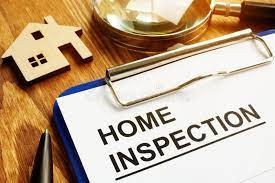Home Inspection Tips: Ensuring Peace of Mind in Your Real Estate Investment
Posted on 29/09/2023 9:50 AM | by NaijaHouses

The Importance of Home Inspections
A home inspection is a comprehensive assessment of a property's condition, typically conducted by a licensed inspector. Here's why it's a crucial step in the homebuying process:
1. Revealing Hidden Problems: Even a well-maintained home can have underlying issues that are not visible to the naked eye. A home inspection can uncover problems such as structural issues, electrical problems, plumbing leaks, and more.
2. Negotiating Power: If the inspection reveals significant issues, you can use this information to negotiate with the seller for repairs or a lower price. This ensures that you're not stuck with unexpected expenses after closing.
3. Peace of Mind: Knowing the true condition of the property provides peace of mind. You can move forward with the purchase with confidence, knowing what to expect.
Read also:
SMART STRATEGIES FOR GETTING YOUR MORTGAGE APPROVED
Residence Type: Living In A Gated Community Or An Estate?
HOW TO CHOOSE THE PERFECT NEIGHBORHOOD FOR YOUR FAMILY
Home Inspection Tips
When attending a home inspection, it's essential to be prepared and attentive. Here are some tips on what to look for and consider during the inspection:
1. Hire a Qualified Inspector: First and foremost, ensure you hire a licensed and experienced home inspector. They should have a strong reputation and be impartial in their assessment.
2. Attend the Inspection: Whenever possible, attend the inspection in person. This allows you to ask questions and gain a better understanding of the property's condition.
3. Exterior Evaluation: Start with the exterior of the property. Look for signs of damage to the roof, siding, gutters, and foundation. Pay attention to cracks, water stains, or unevenness.
4. Structural Integrity: Check for any sagging ceilings, walls, or floors. These can indicate structural issues. Look for signs of water damage, such as stains, mold, or musty odors.
5. Plumbing and Electrical Systems: Test faucets, toilets, and showers to ensure they work correctly. Inspect electrical outlets and the breaker box for signs of wear or malfunction.
6. Heating and Cooling: Test the heating and cooling systems to make sure they function properly. Ask about their age and maintenance history.
7. Inspect the Attic and Basement: These areas are often overlooked but can reveal important information. Look for signs of leaks, insulation issues, and pests.
8. Appliances and Fixtures: Test all appliances, lights, and fixtures to ensure they are in working order. Check for leaks or water damage around sinks and appliances.
9. Ask Questions: Don't hesitate to ask the inspector about any concerns or questions you may have. They can provide valuable insights and recommendations.
10. Review the Inspection Report: After the inspection, carefully review the written report provided by the inspector. It should detail all findings, including any potential issues and their severity.